Get the latest financial news, insights and expert analysis from our award-winning MoneyWeek team, to help you understand what really matters when it comes to your finances.
You are now subscribed
Your newsletter sign-up was successful
Want to add more newsletters?

Twice daily
MoneyWeek
Get the latest financial news, insights and expert analysis from our award-winning MoneyWeek team, to help you understand what really matters when it comes to your finances.

Four times a week
Look After My Bills
Sign up to our free money-saving newsletter, filled with the latest news and expert advice to help you find the best tips and deals for managing your bills. Start saving today!
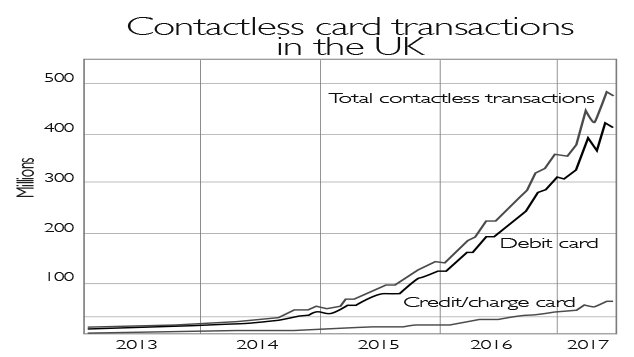
It's easy and convenient to tap and pay. No wonder, then, that contactless card transactions have rocketed in recent years 470 million transactions took place in June alone, notes Hugo Greenhalgh on FT.com.
In the first half of 2017 we spent £23bn in this way, almost as much as the £25bn for the whole of 2015. There are now 111 million contactless cards in issue, compared with 250,000 in 2007, when only 2% of them were used to tap and pay. Last year overall card payments (chip-and-pin and contactless) overtook cash for the first time. A third of card transactions were contactless.
Viewpoint
"Brexiteers are deeply sceptical ofstate action [yet] confronted with the most difficult administrative problem the British state has ever been lumbered with, [they] become optimistic to the point of cavalier about the capacity of the state... these newdirigistessuddenly regard the government as entirely capable of replacing four decades of European economic, social and environmental regulation without difficulty Such is their uncharacteristic faith in the benign hand of Whitehall that, through the Repeal Bill process, they are even prepared to put all power in the hands of ministers and bureaucrats to make regulations by edict."
MoneyWeek
Subscribe to MoneyWeek today and get your first six magazine issues absolutely FREE

Sign up to Money Morning
Don't miss the latest investment and personal finances news, market analysis, plus money-saving tips with our free twice-daily newsletter
Don't miss the latest investment and personal finances news, market analysis, plus money-saving tips with our free twice-daily newsletter
Philip Collins, Prospect
Get the latest financial news, insights and expert analysis from our award-winning MoneyWeek team, to help you understand what really matters when it comes to your finances.

-
 Can mining stocks deliver golden gains?
Can mining stocks deliver golden gains?With gold and silver prices having outperformed the stock markets last year, mining stocks can be an effective, if volatile, means of gaining exposure
-
 8 ways the ‘sandwich generation’ can protect wealth
8 ways the ‘sandwich generation’ can protect wealthPeople squeezed between caring for ageing parents and adult children or younger grandchildren – known as the ‘sandwich generation’ – are at risk of neglecting their own financial planning. Here’s how to protect yourself and your loved ones’ wealth.
-
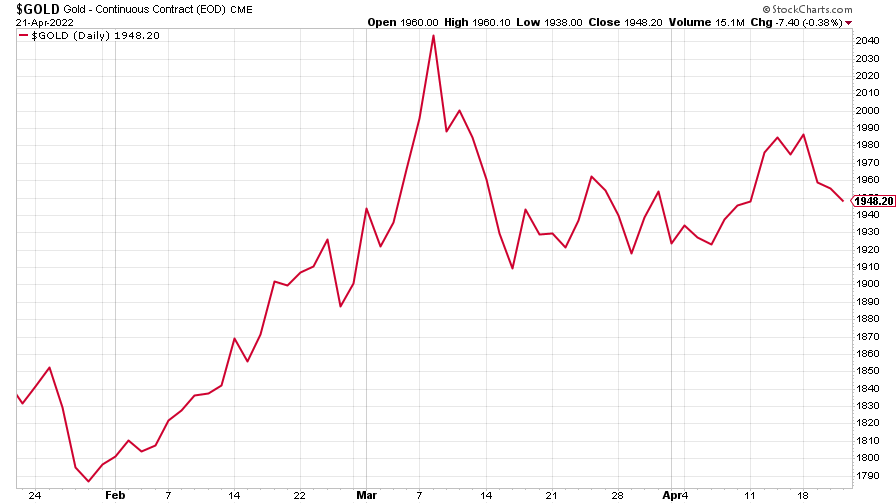 The charts that matter: bond yields and US dollar continue to climb
The charts that matter: bond yields and US dollar continue to climbCharts The US dollar and government bond yields around the world continued to climb. Here’s what happened to the charts that matter most to the global economy.
-
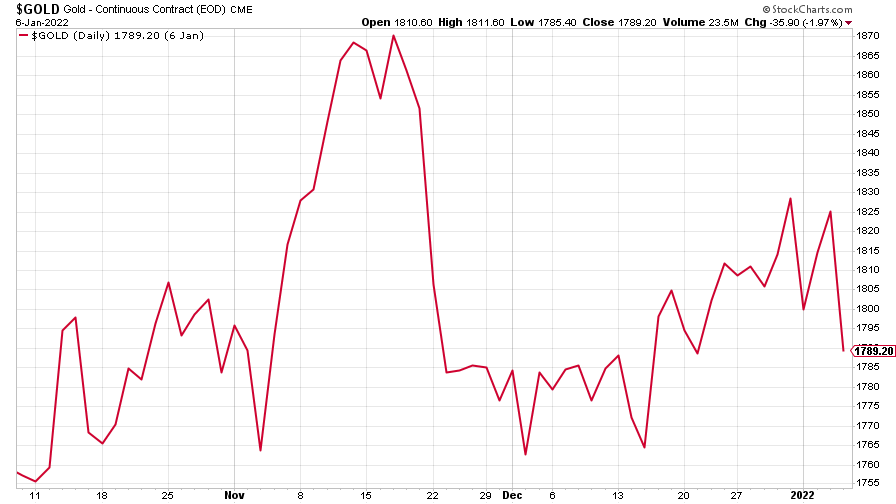 The charts that matter: markets start the year with a crash
The charts that matter: markets start the year with a crashCharts As markets start 2022 with a big selloff, here’s what happened to the charts that matter most to the global economy.
-
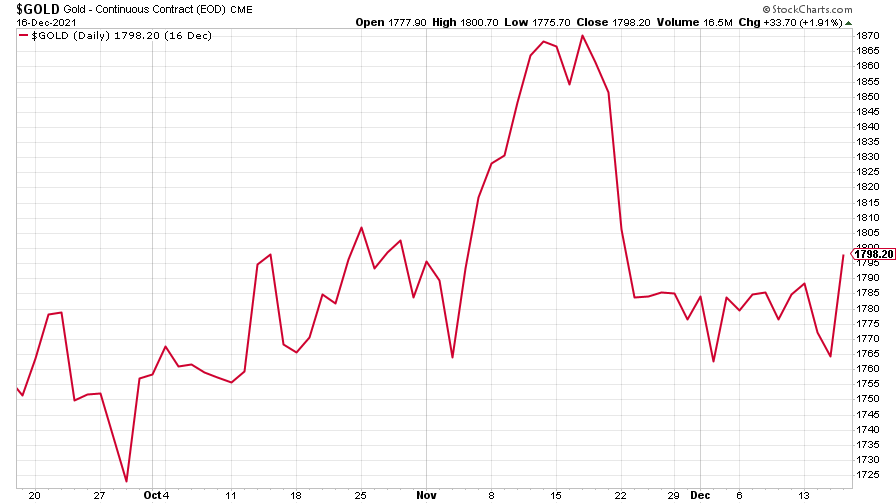 The charts that matter: Fed becomes more hawkish
The charts that matter: Fed becomes more hawkishCharts Gold rose meanwhile the US dollar fell after a key Fed meeting. Here’s what else happened to the charts that matter most to the global economy.
-
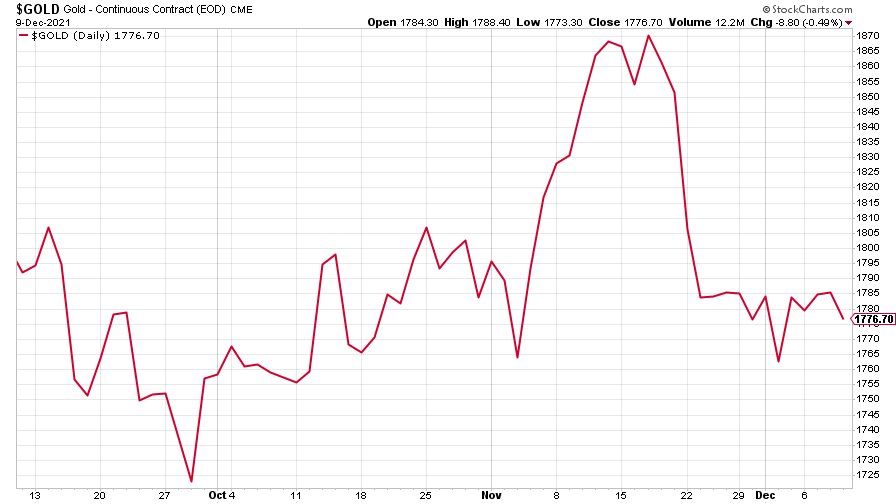 The charts that matter: a tough week for bitcoin
The charts that matter: a tough week for bitcoinCharts Cryptocurrency bitcoin slid by some 20% this week. Here’s what else happened to the charts that matter most to the global economy.
-
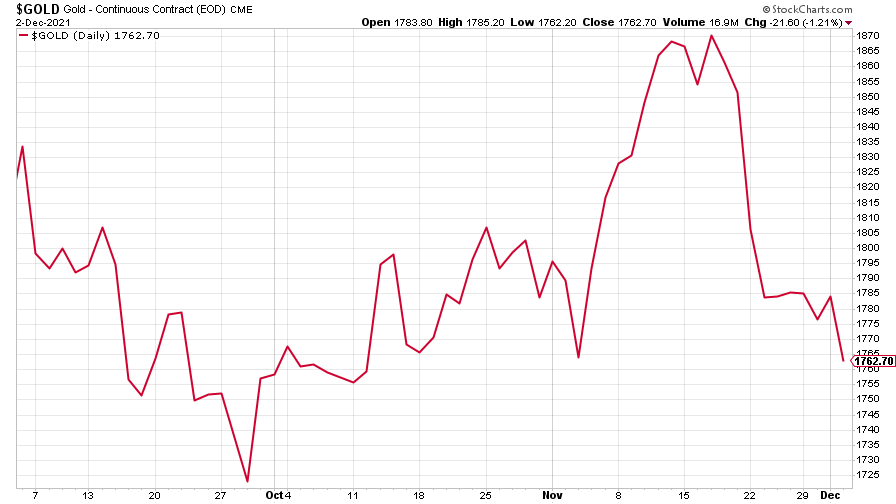 The charts that matter: omicron rattles markets
The charts that matter: omicron rattles marketsCharts Markets were rattled by the emergence of a new strain of Covid-19. Here’s how it has affected the charts that matter most to the global economy.
-
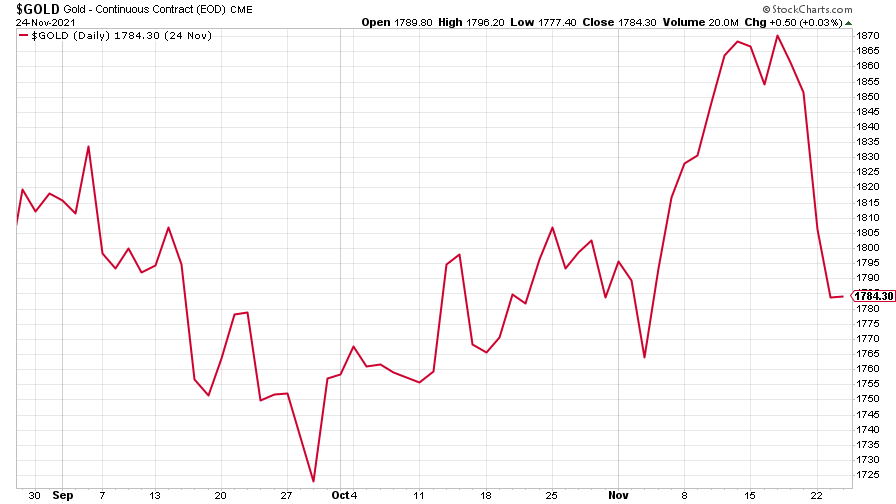 The charts that matter: the US dollar keeps on strengthening
The charts that matter: the US dollar keeps on strengtheningCharts The US dollar saw further rises this week as gold and cryptocurrencies sold off. Here’s how that has affected the charts that matter most to the global economy.
-
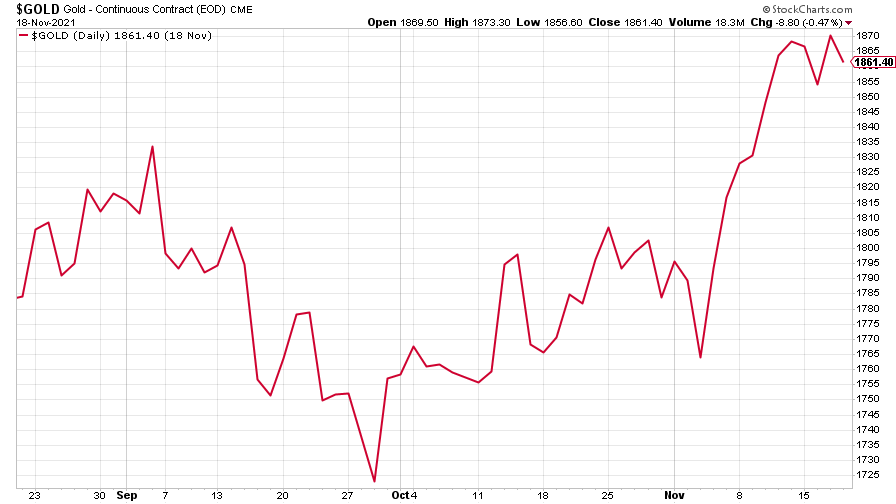 The charts that matter: gold hangs on to gains while the dollar continues higher
The charts that matter: gold hangs on to gains while the dollar continues higherCharts The gold price continued to hang on to last week’s gains, even as the US dollar powered higher this week. Here’s how that has affected the charts that matter most to the global economy.
-
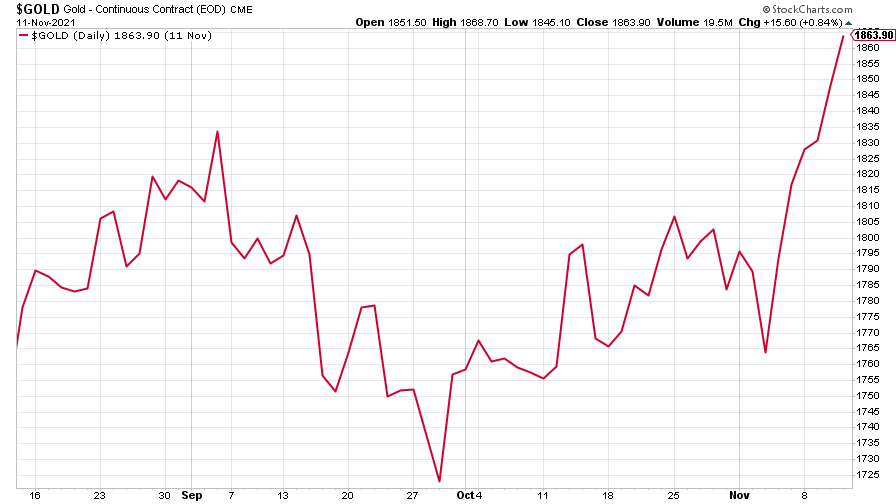 The charts that matter: inflation fears give gold a much needed boost
The charts that matter: inflation fears give gold a much needed boostCharts US inflation hit its highest in 30 years this week, driving gold and bitcoin to new highs. Here’s how that has affected the charts that matter most to the global economy.
